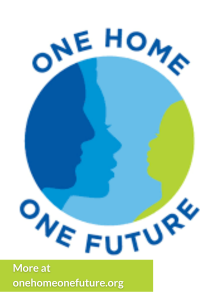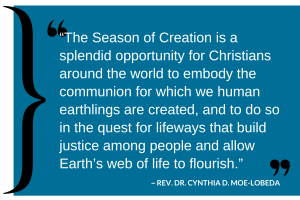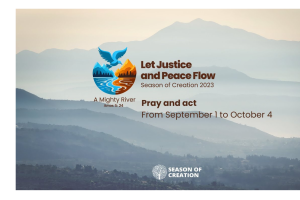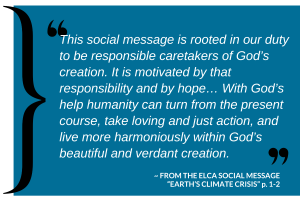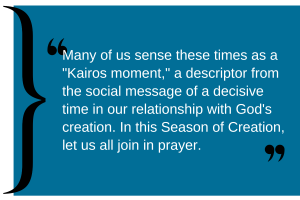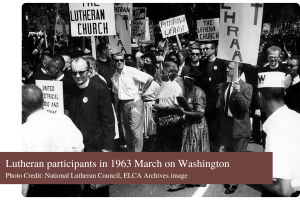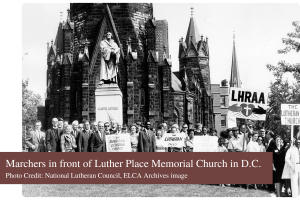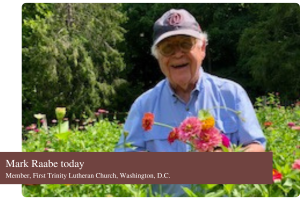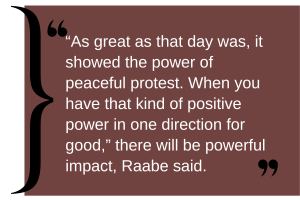OVERVIEW | 2023 FARM BILL REAUTHORIZATION | HOMELESSNESS AND AFFORDABLE HOUSING | GLOBAL HEALTH: HIV/AIDS | TRANSITION TO CLEAN ENERGY WITH AN ENVIRONMENTAL JUSTICE FOCUS | MIGRATION POLICY CLARITY | TRUTH AND HEALING COMMISSION ON INDIAN BOARDING SCHOOL POLICIES | DETENTION OF PALESTINIAN CHILDREN
August Recess is a congressional tradition that brings heightened opportunities to reach out to your federal lawmakers where you – and they – live. U.S. representatives traditionally return to their home districts in this month to engage with their constituents. Town Halls and in-district meetings may be available to you in this period that create windows to raise your experiences, the experiences of your faith community, and policy concerns locally.
Start by locating your lawmaker’s Web presence (govtrack.us is one place to connect). Doing a little homework by looking around at the person’s top issues and sphere of influence can deepen any encounter. If a Town Hall is listed, it may be an open forum or a virtual experience. Virtual experiences may be more constrained in question-and-answer format, but any Town Hall can be a meaningful connection point.
Alternatively, instigate a local meeting. Prepare what you want to say, with pointers from resources below. A virtual visit can be a value-added creative moment to showcase placement of your ministry in the community, building relationships and future potentials. Offering a lawmaker a chance to speak or connect with fellow constituents after a worship service or event will increase the chance of their participation.
Advocacy resources to help you plan from ELCA Witness in Society include:
Below find suggestions from our ELCA policy staff about issues that intersect with 2023 ELCA Federal Policy Priorities that are presently on the horizon. The question prompts may help you shape a timely way to use August Recess opportunities.
 THIS MOMENT IN TIME: 2023 Farm Bill Reauthorization
THIS MOMENT IN TIME: 2023 Farm Bill Reauthorization
“Agriculture is basic to the survival and security of people throughout the world. Through the calling of agriculture, farmers produce the grain for our daily bread and the rest of our food supply. Without a bountiful and low-cost food supply, most Americans would not enjoy the livelihood they do. Farmers face the challenge of producing this food in ways that contribute to the regeneration of the land and the vitality of rural communities.” ELCA social statement on Sufficient, Sustainable Livelihood for All (p 16)
REMARKS
The Farm Bill is traditionally one of the most bi-partisan bills in Congress. This August recess both the House and Senate agriculture committees are drafting the 2023 Farm Bill, a reauthorization that is an opportunity to make this far-reaching, omnibus legislation responsive to present realities. Right now, your voice matters to your representative and senator. In listening sessions held this spring to inform ELCA advocacy on the Farm Bill, participants highlighted the importance of Supplemental Nutrition Assistance Program (SNAP) benefits and were distressed by food waste and food deserts. They were concerned with farms and their intersection with conservation, rural community health, and subsidies and crop insurance. As food production impacts all, they emphasized global food access, hunger and issues for small family farms, and challenges of marginalized communities and farmers. (One way to learn more about the Farm Bill is to follow links in the “Advocacy In Service to Our Neighbor” template letters for “God’s work. Our hands.” Sunday. As your elected representatives work to craft this critical legislation, raise your concerns and priorities.
QUESTIONS
- The Farm Bill supports farmers, hungry people, merchants, resilience for our land and our partners overseas. How are you working to support the Farm Bill and its impact on all our communities?
- Will you protect funding of the Supplemental Nutrition Assistance Program (SNAP) and oppose additional work requirements in the Farm Bill?
- Will you preserve international emergency and non-emergency food assistance programs in the Farm Bill?
 THIS MOMENT IN TIME: Homelessness and Affordable Housing
THIS MOMENT IN TIME: Homelessness and Affordable Housing
“’Sufficiency’ means adequate access to income and other resources that enable people to meet their basic needs, including nutrition, clothing, housing, health care, personal development, and participation in community with dignity. God has created a world of sufficiency for all, providing us daily and abundantly with all the necessities of life.” ELCA social statement on Sufficient, Sustainable Livelihood for All (p. 11)
REMARKS
This summer, the U.S. House of Representatives introduced an annual spending bill that would inflict deep cuts and, in some cases, entirely eliminate federal programs dedicated to increasing housing affordability, expanding homeownership and funding community development. This comes as housing costs have continued to climb across the United States, and as the lack of affordable options has become one of the leading drivers of houselessness in our communities. Many Lutherans and our ministries are in creative and passionate service to address these concerns, yet it is not something we can do alone. Congress must send to the president’s desk a spending bill that fully maintains existing Department of Housing and Urban Affairs (HUD) housing and homeless programs, and think longer term on what can be done to expand the supply of housing for all generations of Americans.
QUESTIONS
- As a member of Congress, what are you doing to assist those of us struggling with houselessness in our district and address the wider housing affordability crisis across the country?
- With rising rents and inflation in housing costs, flat level federal funding to HUD and our local communities will result in fewer people served. Are you committed to fully funding existing federal housing programs to meet inflation?
- How can congregations like my own partner with public partners to help better address our current housing situation in our district?
 THIS MOMENT IN TIME: Global Health: HIV/AIDS
THIS MOMENT IN TIME: Global Health: HIV/AIDS
“The suffering of persons with AIDS demonstrates anew that life for all is vulnerable, limited, and broken, yet also graced with courage, hope and reconciliation. As a disease that affects women, men and children around the world, it shows how closely we are bound together in relationships of mutual trust, need and responsibility.” ELCA social message on “AIDS and the Church’s Ministry of Caring” (pg. 1)
REMARKS
In 2003, the U.S. government launched a program known as the President’s Emergency Plan for AIDS Relief (PEPFAR), through which it provides lifesaving HIV treatment treatments, care and prevention services to people living in low-income countries. PEPFAR is the largest U.S. global health program devoted to a single disease. Today, PEPFAR supports over 20 million people around the world. The current congressional authorization for PEPFAR expires this year on September 30th. Congress needs to pass legislation to reauthorize continuation of the program in its current form. “This past summer, as an ELCA young adult delegate to the International AIDS Conference, I saw firsthand the struggles that many people living with HIV face on a daily basis, and I was moved by the efforts being made by both religious and secular organizations to support these individuals and fight AIDS,” said Brendan Lewis in 2022.
QUESTIONS
- As a member of Congress, what’s your position on the PEPFAR program, which has had bipartisan support since its inauguration?
- What is your commitment to ensuring that a new PEPFAR reauthorization passes this year?
- If you oppose reauthorization of the program, what are the reasons behind that decision and what would you like to see happen to change your position?
 THIS MOMENT IN TIME: Transition to Clean Energy with an Environmental Justice Focus
THIS MOMENT IN TIME: Transition to Clean Energy with an Environmental Justice Focus
“The ELCA calls upon individuals, agencies, organizations, corporations, and governments to pursue goals, set policies, and establish practices that… Promote a just transition from fossil fuels to a clean energy future that leaves no one behind, through public investments in economic development and job retraining programs.” ELCA social message on “Earth’s Climate Crisis” (pp. 11-12)
REMARKS
The Intergovernmental Panel on Climate Change’s Sixth Assessment Report, published in 2021, warns that “global surface temperature will continue to increase until at least mid-century under all emissions scenarios considered. Global warming of 1.5°C and 2°C will be exceeded during the 21st century unless deep reductions in carbon dioxide and other greenhouse gas emissions occur in the coming decades.” With God’s help humanity can turn from the present course, take loving and just action, and live more harmoniously within God’s beautiful and verdant creation. In this Kairos moment for the planet, we must urge passage of policy to further address climate change and to reflect urgency for reducing greenhouse gas emissions. With the passage of the Inflation Reduction Act last August, the United States made the largest investment into climate and clean energy ever. With this investment, further policies and reform must be passed to expedite the transition to clean energy and reduction of greenhouse gas emissions. It is important that we lift up the concern of environmental justice in all energy and environmental policy and highlight the disparate impact of pollution and climate change on low-income communities, ethnic minorities, developing nations and Indigenous lands. Legislation such as the Environmental Justice for All Act, reintroduced this year, aims to address environmental disparities in majority Black, Latino and Indigenous communities.
QUESTIONS
- As a member of Congress, how can you help expedite the U.S.’ transition to clean energy?
- How can Congress ensure that reform to the energy permitting process won’t disproportionately affect low-income communities, ethnic minorities, developing nations and Indigenous lands?
- Do you support the Environmental Justice for All Act? Why or why not?
 THIS MOMENT IN TIME: Migration Policy Clarity
THIS MOMENT IN TIME: Migration Policy Clarity
“The leaders and congregations that have given us this legacy [with roots in immigrant churches in a nation of immigrants] remind us that hospitality for the uprooted is a way to live out the biblical call to love the neighbor in response to God’s love in Jesus Christ. They recall for us God’s command to Israel: ‘The stranger who resides with you shall be to you as the citizen among you; you shall love the stranger as yourself, for you were strangers in the land of Egypt: I am the Lord your God’ (Leviticus 19:34).” ELCA social message on “Immigration” (p. 3)
REMARKS
Many faithful people have taken the Bible’s message to welcome the stranger to heart and in action by accompanying migrants and seeking justice for their neighbors near and far. The experience of asylum seekers and vulnerable youth, and borderland conditions, are samples of situations where U.S. policy can demonstrate our values. An asylum decision can lay pending an average of 4.2 years and at least initially, asylum seekers do not have work authorization, a situation which the Asylum Seeker Work Authorization Act tries to address. Deescalating militarization of U.S. borderlands and cities can help mitigate trust erosion between law enforcement and communities; vulnerability of migrants to extortion, kidnapping and death from exposure; and environmental impacts. The status of youth who from suffered neglect or abuse have court-recognized Special Immigrant Juvenile Status (SIJS), like thousands from Central America and Mexico, are eligible to apply for a green card but face limits on the SIJS number issued in a given fiscal year and “per country” caps, adding to the tenuous nature of their relief from harm. In the next few months, lawmakers will consider each of the Fiscal Year 2024 spending bills, alongside other key policy proposals supporting migrant children and families. How Congress allocates funding sends a clear statement of our values and priorities. The United Nations High Commissioner for Refugees (UNHCR) reports that more than 100 million have experienced forced displacement for complex reasons like persecution, environmental degradation and war. The U.S. immigration system urgently needs to be remade in simple yet effective ways to meet contemporary realities and needs while modeling compassion, pragmatism and cooperation as our customs and values stand for. Urge your representative to heed this call.
QUESTIONS
- Will you support legislation like the bipartisan Asylum Seeker Work Authorization Act (H.R. 1325) to promote the economic self-sufficiency of asylum seekers by expediting work authorization, and how would you suggest building capacity across the asylum system?
- Do you support the invaluable partnership between non-government organizations (NGOs) and federal agencies in U.S. borderlands and cities with federal funding for NGO to help deescalate militarization of the regions?
- Will you support exempting vulnerable youth with Special Immigrant Juvenile Status from annual visa limits?
 THIS MOMENT IN TIME: Truth and Healing Commission on Indian Boarding School Policies
THIS MOMENT IN TIME: Truth and Healing Commission on Indian Boarding School Policies
“We are becoming increasingly aware of the ongoing evils of the Doctrine of Discovery, and by the actions we commit ourselves to herein, we now declare our allegiance to the work of undoing those evils, building right relationships with Native nations and Native peoples, and remaining faithful to our shared journeys toward truth and healing.” From “A Declaration of the [ELCA] to American Indian and Alaska Native People” (p. 5)
REMARKS
In May 2023, S.1723, the Truth and Healing Commission on Indian Boarding School Policies Act, was reintroduced to Congress. The bill would create a formal commission with the goal of listening, investigating, recording and acknowledging previous injustices committed by the government’s past boarding school policies that aimed to assimilate Native American and Indian children. After a markup process including the adoption of amendments reflecting feedback from Tribal leaders, boarding school survivors, advocates, religious organizations and others, S.1723 currently awaits a vote on the Senate floor. The terrible legacy of Indian boarding schools lingers in the bodies and minds of direct survivors and their descendants. They suffer tremendous trauma that impacts their well-being — cultural, spiritual, economic and more. As the ELCA lives into our own Truth-Seeking & Truth Telling Initiative to organize Lutherans around our church’s involvement in Indian boarding schools in the United States and their impact on Native peoples, we also recognized the need for our nation to know and claim complicity in the history of Indian boarding schools and the schools’ deliberate, devastating impacts on Native people and their communities, then and now.
QUESTIONS
- The Truth and Healing Commission on Indian Boarding School Policies Act would provide resources and assistance to aid in the healing of trauma for American Indian, Alaskan Native, and Native Hawaiian communities. As a representative, how are you working to support this bill?
 THIS MOMENT IN TIME: Detention of Palestinian Children
THIS MOMENT IN TIME: Detention of Palestinian Children
“This brutal conflict has taken hundreds of Palestinian lives and caused untold suffering. It has also divided the citizens of Israel as well as the worldwide Jewish community, many of whom are concerned that a continuation of the conflict will only further erode Israel’s democratic institutions and undermine Jewish prophetic values, which are our Christian legacy as well.” ELCA social message on “The Israeli/Palestinian Conflict” (pg. 2)
REMARKS
The Israeli military prosecutes between 500 and 700 Palestinian children each year, according to Defense for Children International – Palestine. An average of 225 Palestinian children are held in custody each month, according to data provided by the Israel Prison Service. The systematic denial of their due process rights along with widespread ill-treatment must end. H.R. 3103, the Defending the Human Rights of Palestinian Children and Families Living Under Israeli Military Occupation Act, to stop US taxpayer funding of this practice and halt the destruction of Palestinian homes which often renders children homeless, a violation of international humanitarian law. A statement from the Rev. Elizabeth Eaton, ELCA presiding bishop on July 5, 2023 reinforced: “The ELCA will continue our advocacy for justice in the Holy Land in collaboration with our ecumenical, interfaith and other partners who share our commitments to seeking a just peace for Palestinians and Israelis.”
QUESTIONS
- As my Representative, will you co-sponsor H.R. 3103, the Defending the Human Rights of Palestinian Children and Families Living Under Israeli Military Occupation Act?
Thank you for your advocacy.
 IN TIME OF WAR: As weeks extend in the temporarily paused Isael-Hamas war, faith leaders continue to urge peace. Signed by the Rev. Elizabeth Eaton, ELCA presiding bishop, several ELCA synod bishops and others through Churches for Middle East Peace, a Nov. 29 letter to President Biden says, “We condemn all acts of violence against civilians and grieve with Israelis and Palestinians who have lost loved ones.” It urges: “You have a unique opportunity to turn the tide of history and finally demand that the fighting stop and that the parties involved resolve their differences through negotiations and diplomatic means. Please do not miss this opportunity. Millions of lives depend on the U.S., no longer being complicit in an unjust war that has already devastated the lives of thousands of civilians. Our prayers are with you in the days and weeks to come. We ask that God give you wisdom and courage to do all you can to bring an end to the killing and the violence.”
IN TIME OF WAR: As weeks extend in the temporarily paused Isael-Hamas war, faith leaders continue to urge peace. Signed by the Rev. Elizabeth Eaton, ELCA presiding bishop, several ELCA synod bishops and others through Churches for Middle East Peace, a Nov. 29 letter to President Biden says, “We condemn all acts of violence against civilians and grieve with Israelis and Palestinians who have lost loved ones.” It urges: “You have a unique opportunity to turn the tide of history and finally demand that the fighting stop and that the parties involved resolve their differences through negotiations and diplomatic means. Please do not miss this opportunity. Millions of lives depend on the U.S., no longer being complicit in an unjust war that has already devastated the lives of thousands of civilians. Our prayers are with you in the days and weeks to come. We ask that God give you wisdom and courage to do all you can to bring an end to the killing and the violence.” FARM BILL EXTENSION: When Congress temporarily averted a government shutdown until early next year an extension of 2018 Farm Bill programs through Sept. 30, 2024, was also passed. Representatives of ELCA Pennsylvania synods visited Capitol Hill on Oct. 26 and shared experiences and priorities regarding feeding ministries, SNAP benefits, conservation programs and other components of the Farm Bill with U.S. Dept. of Agriculture (USDA) staff and offices of elected officials. We thank federal staffers and faith-centered advocates, including bishops, rostered ministers and Lutheran Advocacy Ministry in Pennsylvania staff for this impactful effort organized with ELCA D.C.-based advocacy staff. Seeds planted by this fly-in include stronger relationships with USDA staff members, including connecting with ELCA World Hunger colleagues on new ways states and communities can provide healthy nutrition to low-income children during the summer months.
FARM BILL EXTENSION: When Congress temporarily averted a government shutdown until early next year an extension of 2018 Farm Bill programs through Sept. 30, 2024, was also passed. Representatives of ELCA Pennsylvania synods visited Capitol Hill on Oct. 26 and shared experiences and priorities regarding feeding ministries, SNAP benefits, conservation programs and other components of the Farm Bill with U.S. Dept. of Agriculture (USDA) staff and offices of elected officials. We thank federal staffers and faith-centered advocates, including bishops, rostered ministers and Lutheran Advocacy Ministry in Pennsylvania staff for this impactful effort organized with ELCA D.C.-based advocacy staff. Seeds planted by this fly-in include stronger relationships with USDA staff members, including connecting with ELCA World Hunger colleagues on new ways states and communities can provide healthy nutrition to low-income children during the summer months. CLIMATE-SMART FARMING FUNDING: As the Farm Bill reauthorization continues to be negotiated, members of the House Committee on Agriculture are worried about a move to steer conservation money intended for climate-smart farming into other programs. This would threaten the additional funding for climate-smart agriculture programs in the 2022 Inflation Reduction Act. It seems to be a hurdle toward achieving a bipartisan Farm Bill.
CLIMATE-SMART FARMING FUNDING: As the Farm Bill reauthorization continues to be negotiated, members of the House Committee on Agriculture are worried about a move to steer conservation money intended for climate-smart farming into other programs. This would threaten the additional funding for climate-smart agriculture programs in the 2022 Inflation Reduction Act. It seems to be a hurdle toward achieving a bipartisan Farm Bill. GENDER JUSTICE: For the first time, the U.S. government will contribute to the UNICEF/UNFPA’s Global Programme to End Child Marriage. This program was launched in 2016 to fight child marriage in 12 countries that have high prevalence rates, but the United States had not contributed funding for this work. The UNICEF/UNFPA work is separate from the bilateral work that USAID and the State Department are doing to end child marriage globally. Early and forced marriage is among types of gender-based violence identified in ELCA social teaching as the ELCA shares “rich convictions and significant commitments” to address justice for women and girls.
GENDER JUSTICE: For the first time, the U.S. government will contribute to the UNICEF/UNFPA’s Global Programme to End Child Marriage. This program was launched in 2016 to fight child marriage in 12 countries that have high prevalence rates, but the United States had not contributed funding for this work. The UNICEF/UNFPA work is separate from the bilateral work that USAID and the State Department are doing to end child marriage globally. Early and forced marriage is among types of gender-based violence identified in ELCA social teaching as the ELCA shares “rich convictions and significant commitments” to address justice for women and girls. NOTEWORTHY LEGISLATIVE BREAKTHROUGHS: While it can appear that Congress is immobile in bipartisan immigration reform, some breakthroughs are taking place. Of note, the House has introduced the Afghan Adjustment Act which would enable Afghans with parole status to adjust their legal status;Bthe Asylum Seeker Work Authorization Act (H.R.1325) which is responding to the community’s support of families seeking safety by shortening the length wait-period for work authorization; and most recently, the Immigration Court Efficiency and Children’s Court Act of 2023 which would help make sure that unaccompanied children receive due process and meaningful support navigating immigration proceedings streamlined through the creation of a Children’s Court. These bills are noteworthy in scope and support, and because they are responsive to concerns raised by people of faith including ELCA Witness in Society staff and other advocates.
NOTEWORTHY LEGISLATIVE BREAKTHROUGHS: While it can appear that Congress is immobile in bipartisan immigration reform, some breakthroughs are taking place. Of note, the House has introduced the Afghan Adjustment Act which would enable Afghans with parole status to adjust their legal status;Bthe Asylum Seeker Work Authorization Act (H.R.1325) which is responding to the community’s support of families seeking safety by shortening the length wait-period for work authorization; and most recently, the Immigration Court Efficiency and Children’s Court Act of 2023 which would help make sure that unaccompanied children receive due process and meaningful support navigating immigration proceedings streamlined through the creation of a Children’s Court. These bills are noteworthy in scope and support, and because they are responsive to concerns raised by people of faith including ELCA Witness in Society staff and other advocates.
